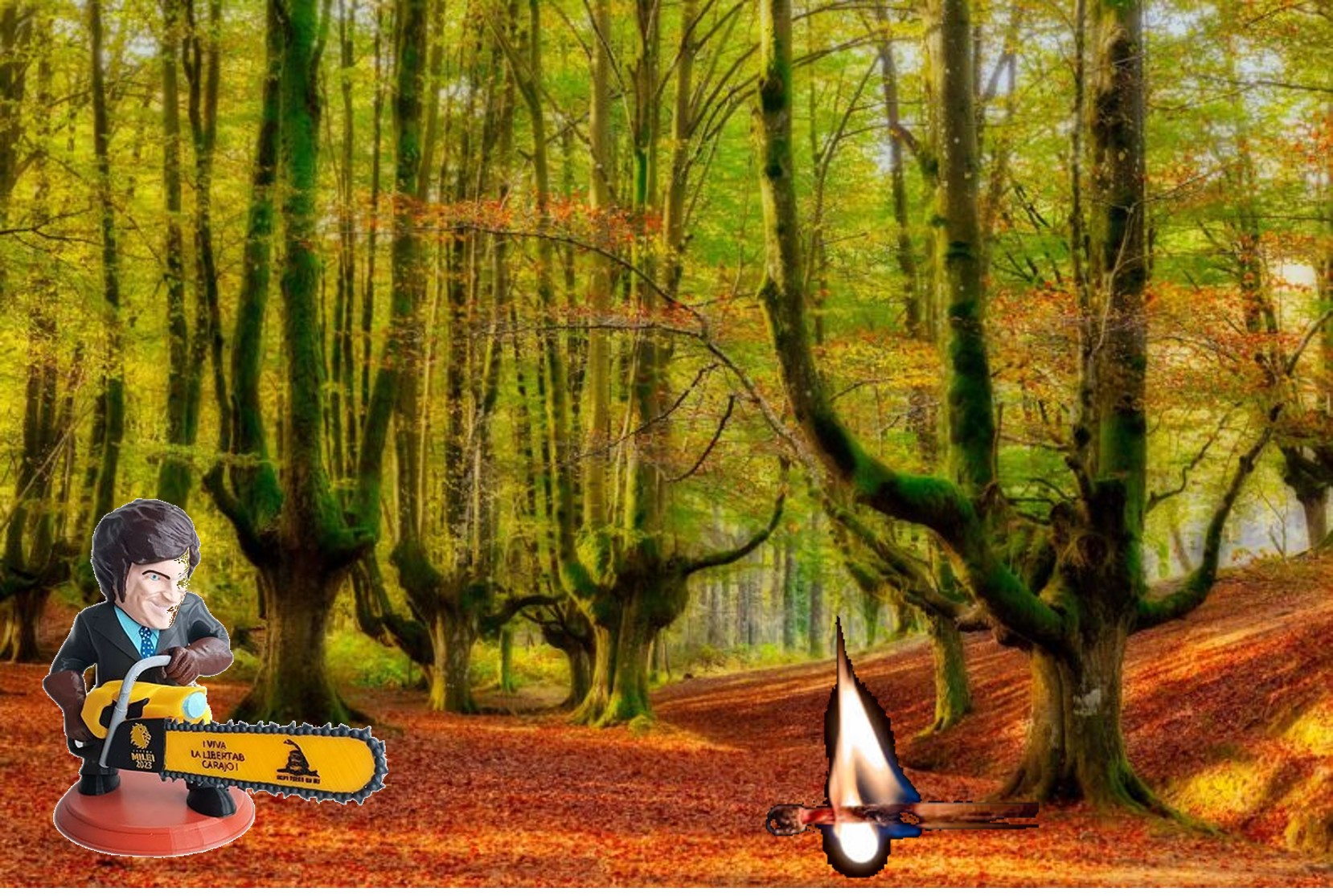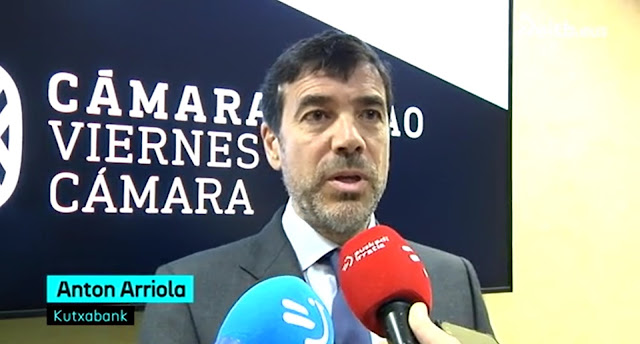When we are forced to call for a binding law
Those of us who write and sign these lines are young people between 20 and 26 years old who have joined us in the context of the generational relay of Euskalgintza. In our case, we have decided to contribute to the struggle of the Basque Country in the Basque Country from Euskaraz. Each of us, conditioned by the concrete context experienced, has had personal experiences and motivations to activate and work as Basques in favor of our language and the community of speakers. But all of us, in one way or another, have noticed that something is not going well: still a great part of the students of Euskal Herria continue to learn in models A, B and G; that many people like us who have learned in model D have insufficient motivation to express themselves in Basque; that linguistic competence is very scarce in general; that the lack of referents and the lack of cultural transmission makes us increasingly seen.
It is clear that in the process of recovering a minority language not only can regulated teaching be a fundamental element in recent decades. Since it was noted that the educational systems we have since EHE years ago do not euskaldunise, the deficiencies we have are increasingly evident. The need for a leap in language policies (including education) was claimed and the whole of Euskalgintza has gradually joined this diagnosis.
In this case, since the debate on the Education Law of the three provinces broke out, the Council of Euskalgintza has managed to unite the agents and unions that represent the vast majority of the educational community in three main axes: an inclusive generalized model with Euskera as a vehicular language; a Basque curriculum centered on Basque culture; and the integral development of non-regulated education in Euskera.
We cannot afford to respond in silence or in a low tone. We understand that the refusal to this law, the planting, is an obligation of the Basque culture and the Basque people.
From EHE, in addition to adhering to these demands, we put forward the ten proposals that education needs in order to euskaldunizar and that, therefore, should collect this law.
A broad social consensus has been reached, but what comes to us at institutional level is quite the opposite: a law which, far from responding to the situation we have, will create the conditions for deepening the crisis we are experiencing in the process of revaluation. The parties that are raising this law, PNV and PSE, are turning our backs on both the Basque cultural activity as a whole and the educational community. It is unacceptable that we should go ahead with the law that has been presented to us from Euskalgintza by ignoring what so many years have fought and despising our demands. And at the same time unacceptable that those who held our own banner in the demonstration against aggression against the Basques propose this anti-Basque law. Given the context, at least we clearly frame this law within aggression.
That is why we are concerned, given the importance of this issue, at the lack of a response from Euskalgintza so far, or at least the humility of the response. We believe that all Vascophiles and Euskalgintza have to do PLANTO (yes, in capital letters) to this law, because if there is no strong response to this insult, they will again undermine the new broad consensus that will be achieved. We cannot afford to respond in silence or in a low tone. We understand that the refusal to this law, the planting, is an obligation of the Basque culture and the Basque culture.
These are not crossed arms times. It is time to recover what we are losing, to strengthen it and to open it to new spaces. And we will only do that by acting. “We are young and we disagree” was the motto of the generation of some of you. For we do, but it is clear that young people cannot be alone and all those who have been young so far also need you. Within 36 years, so that the young people who are going to start working in Euskalgintza do not have to repeat what we are demanding today and what they were asking for 36 years ago.
Therefore, we invite all Euskaltzales and agents of Euskalgintza to join the protest we are going to make next Thursday, 21 June, at 09:00 hours in front of the Gasteiz Parliament. Together, let us plant this Education Act and reclaim the Basque Education we need.
Signature: Sugoi Etxarri Zabaleta, Luken Etxabe Aizpuru, Irati Areitio Sopelana and Intza Gurrutxaga Loidi (members of EHE).
Bidali zure iritzi artikuluak iritzia@argia.eus helbide elektronikora
ARGIAk ez du zertan bat etorri artikuluen edukiarekin. Idatzien gehienezko luzera 4.500 karakterekoa da (espazioak barne). Idazkera aldetik gutxieneko zuzentasun bat beharrezkoa da: batetik, ARGIAk ezin du hartu zuzenketa sakona egiteko lanik; bestetik, egitekotan edukia nahi gabe aldatzeko arriskua dago. ARGIAk azaleko zuzenketak edo moldaketak egingo dizkie artikuluei, behar izanez gero.
You may not know who Donald Berwick is, or why I mention him in the title of the article. The same is true, it is evident, for most of those who are participating in the current Health Pact. They don’t know what Berwick’s Triple Objective is, much less the Quadruple... [+]
The article La motosierra puede ser tentadora, written in recent days by the lawyer Larraitz Ugarte, has played an important role in a wide sector. It puts on the table some common situations within the public administration, including inefficiency, lack of responsibility and... [+]
Is it important to use a language correctly? To what extent is it so necessary to master grammar or to have a broad vocabulary? I’ve always heard the importance of language, but after thinking about it, I came to a conclusion. Thinking often involves this; reaching some... [+]
The other day I went to a place I hadn’t visited in a long time and I liked it so much. While I was there, I felt at ease and thought: this is my favorite place. Amulet, amulet, amulet; the word turns and turns on the way home. Curiosity led me to look for it in Elhuyar and it... [+]
Adolescents and young people, throughout their academic career, will receive guidance on everything and the profession for studies that will help them more than once. They should be offered guidance, as they are often full of doubts whenever they need to make important... [+]
We have had to endure another attack on our language by the Department of Education of the Government of Navarre; we have been forced to make an anti-Basque change in the PAI program. In recent years, by law, new Model D schools have had to introduce the PAI program and have had... [+]
Public education teachers have the need and the right to update and improve the work agreement that has not been renewed in fifteen years. For this, we should be immersed in a real negotiation, but the reality is deplorable. In a negotiation, the agreement of all parties must be... [+]
A few weeks ago, on Diputación Street, in the centre of Vitoria-Gasteiz, two men threw a homeless person off the small landing outside the place where he slept. In addition to being thrown away, a metal railing was immediately placed in front of the lonja. Although the place... [+]
From linguistics or glotophobia and, of course, hatred against Basque, we have often seen our Basque become the dandruff of all sticks. Last of all, the president of Kutxabank, Anton Arriola, has been shaking our language and giving us galantas.The President of Kutxabank,
... [+]
Do not look for this connection from Ezkio or Altsasu, let alone crossing the Ebro River through Castejón. The connection, or rather the connections, between the Basque Y and the AVE of Navarre is already a reality. It is these links in the plural that should concern us and... [+]
Don't make a fuss, don't confront, don't victimize... and obey. As oppressed subjects, in this case as Basques, we talk, how many times have we had to listen to them? Ironically, two years ago, at the Euskalale Independentiston Meeting, Esne Arzallus said: "We have arrived here,... [+]
Aurten "Israel Premier Tech" txirrindularitza talde israeldarra ez da Lizarraldeko Miguel Indurain Sari Nagusia lasterketara etorriko. Berri ona da hori Palestinaren askapenaren alde gaudenontzat eta munstro sionistarekin harreman oro etetea nahi dugunontzat, izan... [+]
Intsumituek denbora luzez egindako borroka gogorra eta mingarria izan zen, baina irabazi zuten, eta garaipen hura behin betikoa izango zela uste genuen, atzera bueltarik gabea. Baina badirudi, politikari batzuen ahotik aterata, eskalada militaristari gorazarre egin eta berriz... [+]
Punto Bobo liburuaren irakurketan murgilduta, Itxaso Martin Zapirain egilearen Eromena, Azpimemoria eta Isiltasunak Idazten ikerketa lanean sentitu nuen egiazkotasun eta maila etikoarekin egin dut berriz ere topo. Eta hortaz, hara bueltatu. “Oihu izateko jaio zen isiltasun... [+]










